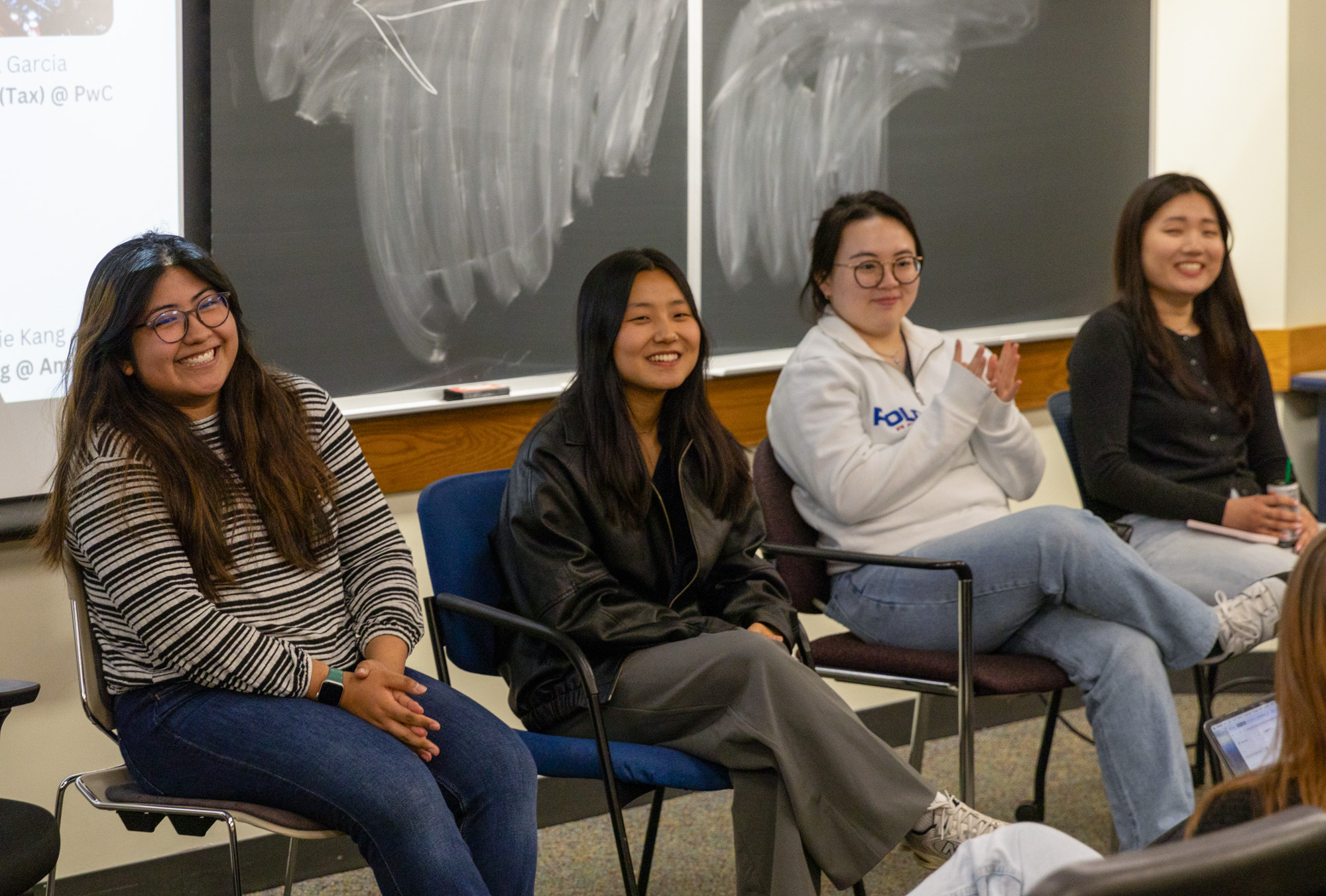“Women mean business” — members of herNetwork adhere to this motto, a play on words from the Questrom School of Business’ slogan, “Questrom means business.”
Founded in 2015, herNetwork is a leadership development organization for female BU undergraduate students, “dedicated to empowering and helping undergraduate women navigate their careers in the business industry,” said Rosie Kang, a senior in Questrom and president of the club.

Kang noted that it is often difficult for women to pursue careers in male-dominated industries like finance and accounting. She said herNetwork provides a supportive and empowering environment to help women pursue these goals.
“[herNetwork is] a great opportunity for undergraduate women to network and build those fundamental skills so that they can hopefully apply them when they go out into the real world and when they attack their first job,” Kang said.
Throughout the academic year, herNetwork hosts professional development workshops, speaker panels and its annual “Women Mean Business” conference in the spring. The all-day networking event invites more than 40 women from a variety of companies and features panels on a variety of business disciplines, such as finance and marketing.
“It’s a really great opportunity to network and build those connections and to see which industries could be the right fit,” Kang said.
Besides supporting its members professionally, the club also focuses on forging relationships among its members through community-building events. Last semester, the club hosted a “paint and sip,” where members painted canvases while enjoying non-alcoholic beverages.
“There was that lack of connection with our general members,” Kang said. “I initiated more community-based events [and] more networking within the group rather than externally.”
Adriana Lam, a freshman in Questrom and the herNetwork marketing chair, said that she enjoys the diversity within the organization, which is not limited to just Questrom students.
“Even if you’re not a business major, join herNetwork, mostly because of the type of people that you’d meet,” Lam said.
Lam said that herNetwork is a great way for people to find the intersection between business and their other interests.
“Following your passion and intertwining it with business is such an amazing quality that you can have the opportunity to do [at herNetwork],” Lam said.
Maria Vasco — the owner and CEO of Uvida, a sustainable homegoods store in Brookline — was able to combine her passion for environmentalism with business. She credits other female entrepreneurs for offering her guidance throughout the challenges she faced during her business venture.
“Meeting other women who are going through a similar stage in their business or have already surpassed it really guides the way for the next generation of women who are trying to make an impact through their business,” Vasco said.
Female students make up 43% of Questrom’s student body, according to the college’s website.
Kabrina Chang, the associate dean for Questrom’s Center for Diversity, Equity & Inclusion and a clinical associate professor in Questrom said that the appointment of Dean Susan Fournier marked an important step towards female representation in business at BU.
“Having a woman as a dean for the very first time in the history of Questrom really shows women that the highest levels of leadership are possible,” she said.
Vasco said that establishing a network of female entrepreneurs can make starting out in business more accessible for women.
“That’s truly how we create a supportive community and we make it more inclusive for everyone that wants to consider starting their own business,” she said.
Chang said that many of the issues women in business face — such as pay inequity and a lack of paid family leave — stem from larger systemic problems.
“The issues women face in business are not new,” she said. “Some of these structures are really unfriendly, given that women do the lion’s share of the child rearing and work at home.”
Because of the expectation that women’s work is at home, Chang acknowledged the way “flexible work arrangements” impact women in particular.
“For some women, myself included, that could mean that you never stop working,” she said about remote working. “If you can work from home, there’s no sort of separation between my office and home.”
Chang praised herNetwork, which is co-sponsored by both Questrom and Questrom DEI, for educating its members on issues like these and creating a strong community for women pursuing business.
“herNetwork shows the strength of women building networks, which is super important, and women helping women,” Chang said. “But it’s also a great educational resource.”
This article previously stated that there are 102 women-owned businesses in Boston. This number is incorrect.


























































































































